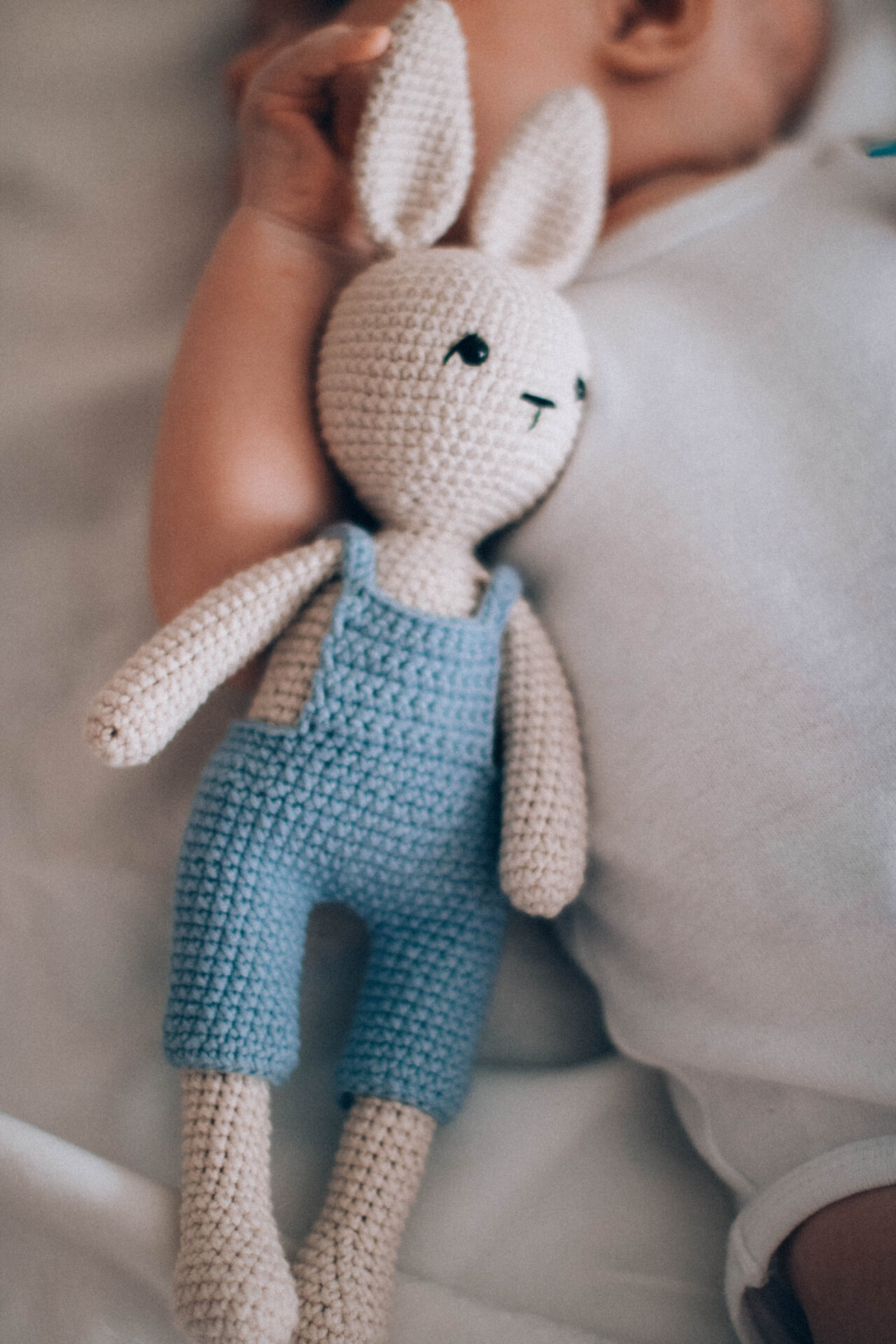From the moment a newborn enters the world, their curiosity and engagement with the environment around them begins to develop. Play is essential in their overall development and health, and has a wide range of benefits. By participating in activities and games, newborns learn to explore and interact with their surroundings, as well as develop certain skills. Through this article, we will explore the many benefits of play for newborns and why it is so important.
Developmental Benefits
Playtime is critical for newborns in helping them to develop their cognitive skills. The national scientific council on the Developing Child reported that it is through play that children best learn problem-solving, critical thinking and creative expression. Playing makes it easier for newborns to understand language and practicing abstract thinking. Toys specifically designed to stimulate cognitive development can help a newborn’s problem-solving skills and promote the development of their reasoning and analytical skills.
Emotional Benefits
Playing with a newborn can also help them develop their social and emotional skills. During playtime, babies learn to express themselves and create special bonds with the people around them. Through this playful connection, parents are able to nurture and deepen their relationship with their child. Furthermore, playing helps a newborn to better understand their feelings and emotions, which can help them cope better with different situations in life.
Motor Benefits
Playing also helps newborns to develop motor skills. Through playing, babies can practice their motor skills using their arms and legs, which helps them learn how to crawl, sit up, and even walk. Moreover, playing with different types of toys can help a newborn to use intentional movements, like when they grasp and release a toy. This also helps them learn cause and effect. Lastly, playing can help newborns learn about visual tracking, allowing them to track objects with their eyes, which can help their overall development.
Communication Benefits
Playing with a newborn can also help them develop their communication skills. Playing is an important way for a newborn to learn how to communicate with those around them. Through playing, babies learn to express themselves in different ways, like smiling, babbling, and showing facial expressions. Additionally, playing with toys can help them learn how to imitate the sounds that they hear and say their first words. This can help them to better communicate their needs.
Boosting Communication Skills
Play is highly beneficial to newborns in the way of boosting their communication skills. Through playtime, babies practice their vocalizations and express their feelings. Newborns benefit from the interaction and comfort of your voice. Singing, talking, and reading out loud to your baby are all excellent forms of verbal stimulation. Infants can learn to recognize familiar sounds and words by hearing them regularly. Games such as peek-a-boo, blowing bubbles, and pat-a-cake are also great ways to reinforce your child’s verbal communication skills.
Developing Nonverbal Communication
Newborns can also develop their nonverbal communication skills through play. Playing with shapes, colors, and textures helps them to recognize different objects and learn their physical attributes. Babies learn to express their emotions, such as excitement and fear, through facial expressions and body language. Games such as hide-and-seek and rolling a ball back and forth are excellent ways to help your baby learn nonverbal communication.
Learning Social Interaction & Relationships
Playtime gives newborns an invaluable opportunity to learn about social interaction and relationships. Through play, babies learn how to read and respond to another person’s body language and facial expressions. Games such as peek-a-boo, and other infant hide-and-seek games help your baby understand the concept of object permanence and the idea that people they can’t see still exist. This lays the foundations for future relationships and social interactions.
Improving Cognitive Development
Playtime also helps newborns to improve their cognitive development. Activities such as looking at books, pointing to objects, and playing with age-appropriate toys help stimulate their brains and help them learn new skills. Tummy time encourages babies to reach and grab at objects, allowing them to practice fine motor skills. Playing with different textures and shapes helps your baby explore their environment and strengthen their problem-solving skills.
By engaging in stimulating playtime activities, newborns can improve their communication, social, and cognitive skills, preparing them for a bright future.
Developing Motor Skills
Playtime activities play a vital role in the physical development of newborns and infants. Through play, newborns and infants begin to develop their gross and fine motor skills. Gross motor skills involve the coordination of large muscles, while fine motor skills involve using small muscles and the dexterity of fingers. During play, newborns and infants have the opportunity to practice these mechanics of movement and coordination. This includes activities like crawling, reaching, rolling, and the ability to manipulate toys.
Promoting Coordination
The ability to use their bodies in coordinated and planned movements, like grasping and reaching, allows newborns and infants to explore their surroundings. This helps them to develop their physical and cognitive abilities. For instance, activities like peek-a-boo help infants to recognize and identify objects, while stacking toys encourages the practice of manipulating and grasping objects. Furthermore, developmental toys, like balls and rattles, help to stimulate movement and visual tracking.
Balancing Reflexes
Newborns and infants are born with several reflexes. One of these reflexes, known as the Moro reflex, is an involuntary startle response which can be calmed through movements, like rocking or bouncing. Such activities, which involve taking control of their bodies and learning how to respond, help to balance the reflex and strengthen coordination.
Exploring with Play
Through play, newborns and infants are able to practice the coordination of their senses and movements. This helps them to develop and explore their newfound abilities while gaining confidence in their abilities. This exploration can lead to further learning, such as developing language and recognizing objects.
By providing newborns and infants with playtime activities, parents and caregivers can create a safe and stimulating environment that allows them to practice the physical development of their gross and fine motor skills, while encouraging exploration and learning.
What Activities Can Help Develop Newborn Motor Skills?
When it comes to promoting physical development, activities that require use of the arms and legs are particularly beneficial for newborns and infants. Parents and caregivers can use a variety of activities to encourage the use of gross and fine motor skills. These activities could include tummy time, which is when a baby is placed on their stomach to practice holding their head up, crawling, and playing with toys. Infants can also be encouraged to practice reaching and grasping through activities like playing with hand puppets or balls.
The Benefits of Play
Playtime activities provide newborns and infants with a variety of important benefits. Not only does playtime help to develop motor skills, but it also provides an opportunity for bonding and exploration. By engaging in playtime activities, newborns and infants can practice physical movements and develop confidence in their newfound abilities, while parents and caregivers can help to support and encourage their development.
Enhancing Cognitive Skills
Playing is one of the key activities that help babies and toddlers to develop their cognitive abilities. Playtime encourages babies and toddlers to explore their environment, and create cognitive links between sights, sounds, and actions. It helps them to develop basic problem-solving skills, as well as language, memory, and other fundamental capabilities. Activities like board games, jigsaw puzzles, and memory games are great for enhancing cognitive development in babies and toddlers. Through play, babies and toddlers can also learn about cause and effect, and develop their ability to reason.
Stimulating Mental Growth
Playing is also particularly important for stimulating mental growth in babies and toddlers. Through play, babies and toddlers are able to interact with their environment in new ways, and this aids in the development of their cognitive skills. Playing with others also encourages social interactions, as well as the development of motor coordination and other physical skills. Through playful learning, babies and toddlers can also discover the world around them, and develop a better understanding of their world.
Developing Self-Confidence
Playtime is also essential for developing self-confidence in babies and toddlers. Through play, babies and toddlers learn to trust themselves and their own abilities, as well as develop the self-discipline and resilience essential for later childhood development. Playing also encourages babies and toddlers to learn at their own pace and to respect the views and feelings of others. It also helps babies and toddlers to learn to take initiative, make decisions and take risks.
Promoting Brain Development
Finally, playtime helps to promote brain development in babies and toddlers. Through play, babies and toddlers are better able to develop the neural pathways that are essential for lifelong learning. Playing also helps babies and toddlers to develop the connections between their senses and their brains, as well as their cognitive abilities. It also encourages their general development, as well as the development of specific skills like reading, writing and math.
Supporting Social Interaction
Engaging newborns in play encourages connection and communication with the caregivers. Through games such as peek-a-boo and sing-alongs, babies can learn to recognize and respond to facial expressions, verbal cues, and physical gestures. This is especially important for the development of communication skills, as babies learn to distinguish between different sounds and associate them with different meanings.
Building these social bonds early on in life is essential for healthy psychological development. Research has suggested that infants who have positive interaction with their caregivers are more likely to have better self-esteem, social competence, and empathy.
Improves Cognitive Development
Play also helps nurture cognitive development in newborns. For example, playing catch with a young infant helps them to understand the cause-and-effect of tossing and catching an object. Singing nursery rhymes and dancing to music, on the other hand, stimulates the language centers of the brain.
Furthermore, playing with shapes, colors, and textures aids in the development of hand-eye coordination. Babies quickly learn to recognize and manipulate different objects, thus enhancing visual perception and problem-solving skills.
Encourages Autonomy & Independence
Developmental experts assert that fostering autonomy and independence in newborns starts with play. Through play, babies gain the motivation to be independent and creative. Engaging in activities such as crawling and reaching helps develop motor control and coordination, which further leads to independence.
Moreover, playing with objects is an essential part of learning to manipulate and explore the world. This exploration allows the baby to develop their own distinct personality, as well as their own preferences and tastes.
Encourages Physical Development
Engaging in play activities is also beneficial for physical development. For instance, playing games that involve crawling, stretching, and reaching helps to strengthen and develop infants’ muscles and bones.
In addition, physical activities encourage healthy sleeping habits and promote good posture. Furthermore, playing outdoors in the sun has been associated with improved mental health and better immunity, as well as Vitamin D production.
Improving Emotional Skills
Playing is essential for newborns, as it helps them to develop many different skills, including their emotional skills. With their limited range of mobility, the world can often feel overwhelming and confusing, but through play, newborns can learn how to better understand and interact with their environment. Here are some of the key benefits of play for improving emotional skills in newborns.
Improving Social Skills
Play can be crucial in teaching newborns essential social skills. Making eye contact, smiling, and responding to others’ facial expressions are all important aspects of forming relationships, and newborns often learn these skills through play. For example, a newborn might be encouraged to ‘pass the toy’ to another person, learn to ‘say goodbye’ when it’s time to go, or use simple blocks to play ‘catch’. Through these interactions, babies learn how to interact with others and develop an understanding of social behaviour.
Building Resilience
Play can have an important impact on newborns’ resilience, as it helps them build confidence and cope with frustration. As babies explore their environment and engage in new activities, they encounter problems along the way, and learning how to understand and solve these problems encourages the development of resilience. Playing is also a great way to boost babies’ sense of accomplishment, as their successes can help them develop a healthier mindset and attitude.
Encouraging Self-Expression
Engaging in play can also be very beneficial for babies’ emotional development, as it encourages self-expression and creativity. Studies have shown that playing with different objects, colours and sounds can help newborns better understand their emotions, and learn how to communicate them. As babies explore their environment, they learn how to create and recreate different scenarios, allowing them to express themselves in a positive way.
Playtime is an important part of development for newborns, as it can help them grow in many different aspects. Through playing, babies learn essential skills, including emotional and social skills, resilience, and self-expression. Parents and caregivers can help to foster this development by engaging in regular play sessions with newborns, which can help them grow and thrive.
The Importance of Playtime
Playtime is an important part of a newborn’s development, allowing them to explore and experiment with the world around them. From the moment of birth, babies are learning and growing, and playtime plays a vital role in their development. During playtime, newborns explore through their five senses, encouraging and stimulating the brain, motor skills and language development.
The Benefits of Playtime for Newborns
There are countless benefits to encouraging playtime from a young age. Playing with a newborn encourages them to learn about the world around them, stimulating their mind and helping them to reach a variety of developmental milestones. For example, when playing with toys, newborns learn about cause and effect and how the environment around them works. Research has also shown that playing with a newborn can help to enhance their cognitive, emotional and social development.
Playtime also has physical benefits for newborns. Placing toys at a distance from a newborn encourages them to move and crawl, helping to strengthen their muscles and improve their motor skills. Through gameplay, newborns also learn to use their hands, getting ready to hold and play with objects later in life.
Creating Enhanced Playtime Experiences For Newborns
There are many resources available to help parents and caregivers create a stimulating playtime experience for their newborn. From interactive toys to books, videos and music, these resources can help create a fun learning experience for newborns.
In addition, research has shown that talking and reading to newborns can boost their development, as it encourages language and cognitive development. Similarly, singing and playing music can encourage babies to move and explore, helping them to find their voice and build confidence in their bodies.
The Power of Play for Infants
Play provides a number of essential benefits for newborns. Encouraging motor development throughout infancy, playtime is an important part of a child’s physical and mental development. It allows babies to explore the world around them and encourages creativity. Similarly, interactive play helps to teach language and communication skills. It can also help babies to bond with those around them and promote social, emotional, and cognitive development. Playtime should include different kinds of activities, like tummy time, singing, and reading. While it can be difficult with a newborn, taking the time to play can be beneficial to their development and set them up for success in the future.





Leave a reply